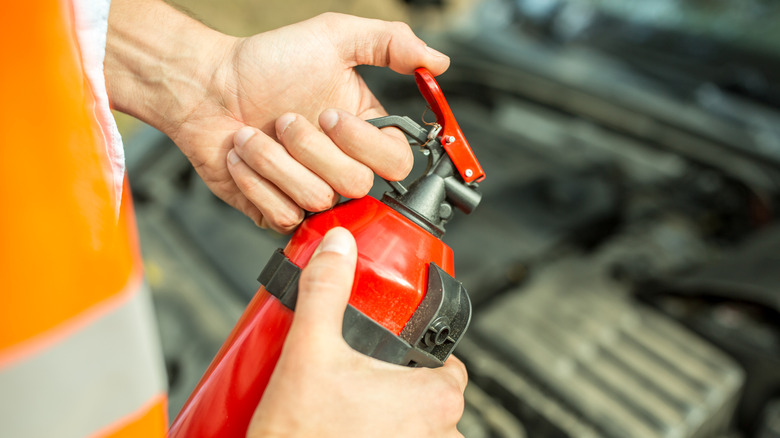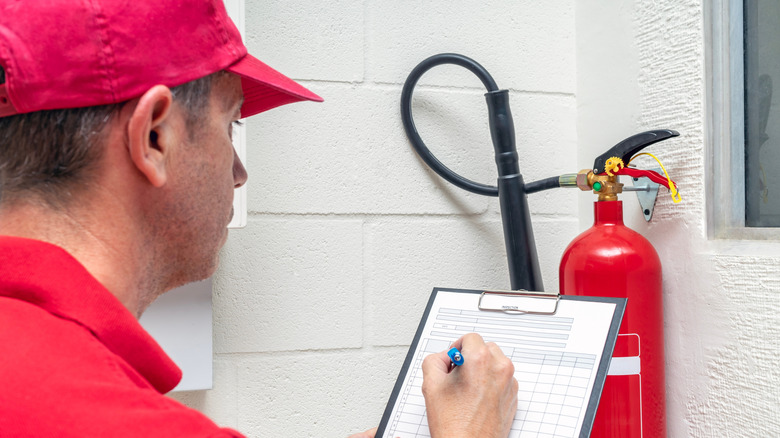Do Fire Extinguishers Expire? Here's What You Should Know
When we think of expiry dates, we often think of perishable products like milk, fruit, and vegetables — but other products have them too. Helmets are one good, but unexpected example of this. But what about fire extinguishers? Do they last forever?
Fire incidents don't happen often, so you'll likely go for years without even looking at your extinguisher. That leads to the question of whether they need replacing after a certain time. After all, a fire extinguisher that fails to work when needed the most could be the difference between a small fire and a deadly disaster.
As it turns out, fire extinguishers do come with an expiry date. In the case of non-rechargeable portable fire extinguishers — which are commonly seen in homes and buildings across the U.S. — the expiry date is 12 years from the year of manufacture. This is not an arbitrary number and is based on the guidelines set by the National Fire Protection Association (NFPA).
For those in doubt, these are the same off-the-shelf fire extinguishers you can buy from retailers like Home Depot, Lowe's, Walmart, or Amazon. These products usually have a legible year of manufacture mentioned on the body, typically near the bottom, alongside several commonly used symbols.
Fire extinguishers still require periodic inspection
While non-rechargeable fire extinguishers expire after 12 years, you can't just leave them alone for that entire time. The NFPA still requires routine inspections to make sure they remain in working order.
NFPA guidelines mandate that all fire extinguishers have to go through a monthly visual inspection. This involves checking that the extinguisher is in the right place, undamaged, and showing proper pressure on the gauge. Later sections talk about more thorough yearly inspections. If an inspector finds a problem, the extinguisher will have to be replaced.
The non-rechargeable type of portable extinguisher is not subject to the same rigorous inspection methods that apply to rechargeable extinguishers. For example, non-rechargeable units are exempt from the six-year internal examination process that applies to their rechargeable counterparts.
That being said, the NFPA categorically states that all portable fire extinguishers should be replaced once they reach the end of their life. This is true regardless of their condition. Even fire extinguishers that look great and have never been used must be replaced if 12 years have passed.

